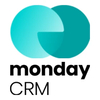Customer Relationship Management (CRM) Software


Customer Relationship Management (CRM) software is a tool that helps businesses manage, track, and optimize their interactions with customers and potential customers in a single system. +Show More
| Products | Position | Customer satisfaction | |||
|---|---|---|---|---|---|
|
|
Niche Player
|
Satisfactory
|
|||
|
Pipedrive is a sales-focused CRM (customer relationship management) tool with 100,000+ paying customers from 179 countries.
Pipedrive focuses on ease of use and offers a simple yet powerful solution.
Basis for EvaluationWe made these evaluations based on the following parameters; Customer satisfaction
Average rating
Market presence
Number of case studies
50-100 case studies
Company's number of employees
400-1k employees
Company's social media followers
100k-1m followers
Features
Low-code / No-code development
No-code
Company
Type of company
private
Founding year
2010
|
|||||
|
|
Niche Player
|
Satisfactory
|
|||
|
Monday CRM enables sales teams to manage the entire sales cycle all customer data in one place. Users can capture leads, manage contact communication, automate manual processes, track deals and run sales analytics using real-time data in customizable dashboards.
Once a sales is closed, all relevant stakeholders including finance, legal, and account managers can use Monday CRM to collaborate with access to all relevant information for billing, contracting, onboarding, and more.
Basis for EvaluationWe made these evaluations based on the following parameters; Customer satisfaction
Average rating
Market presence
Company's number of employees
2k-3k employees
Company's social media followers
100k-1m followers
Total funding
$250-500m
# of funding rounds
8
Latest funding date
June 10, 2021
Last funding amount
$100-250m
Features
Low-code / No-code development
No-code
Company
Type of company
public
Founding year
2012
|
|||||
|
|
Niche Player
|
Satisfactory
|
|||
|
Creatio is a global vendor of a no-code platform to automate workflows and CRM with a maximum degree of freedom. Creatio offering includes a no-code platform (Studio Creatio), CRM applications (Marketing, Sales and Service), industry workflows for 20 verticals and marketplace add-ons:
- Marketing Creatio - a ready-to-use platform to automate marketing campaigns and lead management workflows with no-code and maximum degree of freedom.
- Sales Creatio - an end-to-end platform to automate sales processes of any type with no-code and maximum degree of freedom.
- Service Creatio - an omnichannel platform to automate customer service workflows of any complexity with no-code and maximum degree of freedom.
- Studio Creatio - a no-code platform to automate workflows and build applications with maximum degree of freedom.
Creatio products can be deployed as a single CRM bundle or as standalone solutions to fit your company’s exact needs.
Millions of workflows are launched on our platform daily in 100 countries by thousands of clients.
Basis for EvaluationWe made these evaluations based on the following parameters; Customer satisfaction
Average rating
Market presence
Number of case studies
50-100 case studies
Company's number of employees
400-1k employees
Company's social media followers
100k-1m followers
Total funding
$50-100m
# of funding rounds
1
Latest funding date
February 22, 2021
Last funding amount
$50-100m
Features
Low-code / No-code development
No-code
Company
Type of company
private
Founding year
2014
|
|||||
|
|
Leader
|
Satisfactory
|
|
||
|
Salesforce Sales Cloud offers customer relationship management software and applications focused on sales, customer service, marketing automation, e-commerce, analytics, and application development to over 150,000 customers worldwide.
Basis for EvaluationWe made these evaluations based on the following parameters; Customer satisfaction
Average rating
Market presence
Company's number of employees
5-10 employees
Company's social media followers
5k-10k followers
Total funding
$50-100m
# of funding rounds
7
Latest funding date
October 18, 2022
Features
Low-code / No-code development
Low-code
Company
Type of company
public
Founding year
1999
|
|||||
|
|
Leader
|
Satisfactory
|
|
||
|
ClickUp is a project management hub that centralizes work and communication for teams. Through software, teams come together to plan, organize, and collaborate on work using tasks. The platform also offers task assignments, time tracking, goal setting, and workflow automation features.
Basis for EvaluationWe made these evaluations based on the following parameters; Customer satisfaction
Average rating
Market presence
Number of case studies
20-30 case studies
Company's number of employees
1k-2k employees
Company's social media followers
100k-1m followers
Total funding
$1-1bn
# of funding rounds
5
Latest funding date
October 27, 2021
Last funding amount
$250-500m
Company
Type of company
private
Founding year
2017
|
|||||
|
|
Leader
|
Satisfactory
|
|
||
Basis for EvaluationWe made these evaluations based on the following parameters; Customer satisfaction
Average rating
Market presence
Company's number of employees
50-100 employees
Company's social media followers
10k-20k followers
Company
Type of company
private
|
|||||
|
|
Leader
|
Satisfactory
|
|
||
|
ActiveCampaign provides a CRM with strong email marketing automation features, helping businesses nurture leads and manage contacts.
Basis for EvaluationWe made these evaluations based on the following parameters; Customer satisfaction
Average rating
Market presence
Number of case studies
100-200 case studies
Company's number of employees
400-1k employees
Company's social media followers
100k-1m followers
Total funding
$250-500m
# of funding rounds
3
Latest funding date
April 21, 2021
Last funding amount
$100-250m
Features
Low-code / No-code development
No-code
Company
Type of company
private
Founding year
2003
|
|||||
|
|
Leader
|
Satisfactory
|
|
||
|
HubSpot Sales Hub is a sales automation and CRM platform that streamlines the sales process from prospecting to closing. It offers features like configure-price-quote (CPQ) functionality, email tracking, automated outreach, lead scoring, and detailed analytics.
Basis for EvaluationWe made these evaluations based on the following parameters; Customer satisfaction
Average rating
Market presence
Company's number of employees
10-20 employees
Company's social media followers
5k-10k followers
Total funding
$100-250m
# of funding rounds
6
Latest funding date
November 5, 2012
Last funding amount
$10-50m
Features
Low-code / No-code development
Low-code
Company
Type of company
public
Founding year
2006
|
|||||
|
|
Challenger
|
Satisfactory
|
|
||
|
Airtable is a platform that combines elements of a spreadsheet with a database, allowing users to organize, collaborate on, and manage data in a versatile and visual way, catering to various organizational and project management needs.
Basis for EvaluationWe made these evaluations based on the following parameters; Customer satisfaction
Average rating
Market presence
Number of case studies
50-100 case studies
Company's number of employees
400-1k employees
Company's social media followers
100k-1m followers
Total funding
$1-5bn
# of funding rounds
11
Latest funding date
July 1, 2022
Company
Type of company
private
Founding year
2013
|
|||||
|
|
Challenger
|
Satisfactory
|
|
||
|
Freshdesk Social is a customer service software that offers tools for contact management, deal tracking, and email marketing, enabling businesses to nurture leads and improve customer satisfaction.
Basis for EvaluationWe made these evaluations based on the following parameters; Customer satisfaction
Average rating
Market presence
Number of case studies
50-100 case studies
Company's number of employees
5k-10k employees
Company's social media followers
100k-1m followers
Total funding
$250-500m
# of funding rounds
9
Latest funding date
January 1, 2020
Last funding amount
$50-100m
Company
Type of company
public
Founding year
2010
|
|||||
“-”: AIMultiple team has not yet verified that vendor provides the specified feature. AIMultiple team focuses on feature verification for top 10 vendors.
Sources
AIMultiple uses these data sources for ranking solutions and awarding badges in CRM software:
CRM Leaders
According to the weighted combination of 4 metrics
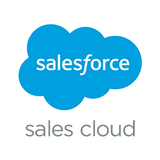



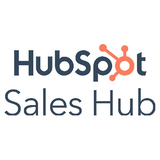
What are CRM
customer satisfaction leaders?
Taking into account the latest metrics outlined below, these are the current CRM customer satisfaction leaders:





Which CRM solution provides the most customer satisfaction?
AIMultiple uses product and service reviews from multiple review platforms in determining customer satisfaction.
While deciding a product's level of customer satisfaction, AIMultiple takes into account its number of reviews, how reviewers rate it and the recency of reviews.
- Number of reviews is important because it is easier to get a small number of high ratings than a high number of them.
- Recency is important as products are always evolving.
- Reviews older than 5 years are not taken into consideration
- older than 12 months have reduced impact in average ratings in line with their date of publishing.
What are CRM
market leaders?
Taking into account the latest metrics outlined below, these are the current CRM market leaders:





Which one has collected the most reviews?
AIMultiple uses multiple datapoints in identifying market leaders:
- Product line revenue (when available)
- Number of reviews
- Number of case studies
- Number and experience of employees
- Social media presence and engagement
What are CRM feature leaders?
Taking into account the latest metrics outlined below, these are the current rpa software feature leaders.

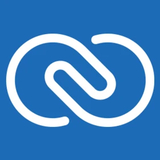
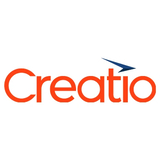

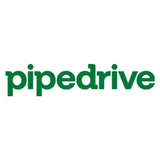
Which one offers the most features?
HubSpot Sales Hub, Zoho CRM, Creatio offer the most feature complete products.
What are the most mature CRM software?
Which one has the most employees?
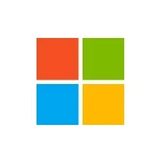
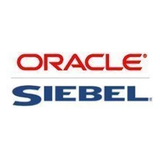
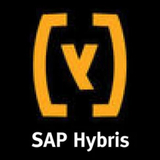

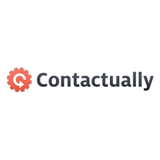
Insights
What are the most common words describing CRM software?
This data is collected from customer reviews for all CRM companies. The most positive word describing CRM software is “Easy to use” that is used in 10% of the reviews. The most negative one is “Difficult” with which is used in 3% of all the CRM reviews.
What is the average customer size?
According to customer reviews, most common company size for CRM customers is 1-50 Employees. Customers with 1-50 Employees make up 53% of CRM customers. For an average Sales solution, customers with 1-50 Employees make up 19% of total customers.
Customer Evaluation
These scores are the average scores collected from customer reviews for all CRM software. CRM Software are most positively evaluated in terms of "Overall" but falls behind in "Likelihood to Recommend".
Where are CRM vendors' HQs located?
Trends
What is the level of interest in CRM software?
This category was searched on average for 165k times per month on search engines in 2025. This number has decreased to 0 in 2026. If we compare with other sales solutions, a typical solution was searched 432 times in 2025 and this decreased to 0 in 2026.
Learn more about CRM Software
According to a report by Pactera Technologies and Nimdzi Insights, in 2018, 53% of enterprises leveraged some form of AI in their CRM systems. Below are the top four ways of relying on AI technologies to transform CRM:
- Predictive lead scoring: Customer sales data can be used to determine a customers’ buying readiness. Companies can analyze won versus lost deals to detect trends that can inform predictive lead scoring methods. You can read more about this in our research on the topic.
- Data cleaning: Advanced analytics approaches can detect irregularities, anomalies, duplicates, and other errors in the data and clean them to improve decision making quality.
- Virtual assistant: Automated virtual assistants can help employees to manage calendars, schedule meetings, make phone calls, take notes, do follow-ups, and assist them in routine manual tasks within a CRM system. A virtual assistant can also group CRM data, support companies with customer segmentation, and interpret natural language queries to handle customer calls or support customer service agents as they answer customer questions.
- Recommendation system: CRMs are data repositories. Using data collected in CRM, next steps can be identified to progress customers along the sales funnel. For example, personalized sales and marketing material can delivered at specified times to improve sales performance. Customized product recommendations can also be identified for cross-sell based on CRM data.
A CRM (Customer Relationship Management) system tracks a company’s sales-related interactions with customers. It aims to increase sales efficiency and improve business relationships by maintaining customer relationships, facilitating processes, and improving profitability.
Wikipedia defines CRM as:"Customer relationship management (CRM) is an approach to manage a company's interaction with current and potential customers "
CRM data can be used to understand customers better and discover their needs or styles to personalize the customer communication or the products offered to the customer. Sales history, customers' online interactions and requirements of similar customers can be used in recommendations
Product recommendations are personalized in most advanced companies. As a real-life example, Microsoft has integrated Azure ML into Dynamics 365. The model computes relationships between customers and the products they purchase. The CRM system can show suggested products to sell. Users can rate these suggestions to improve recommendation performance. Salesforce, another vendor, states that personalization can improve sales by 10%.
Communication with customers is harder to personalize automatically. However, there is already multiple companies striving to support sales personnel with customer specific communication suggestions
According to research by Dun & Bradstreet, 91% of data in CRM systems is incomplete, 18% is duplicated, and 70% is rendered stale each year.
- Errors can occur while entering new sales data. These errors include duplicate entries, incomplete information, or mistaken values. If companies don't clean erroneous data, their analysis can misguide them and cause wrong decisions. Feel free to read our detailed guide about data cleaning.
- CRM data grows stale as customer employees change jobs, customers go out of business or change their area of focus.
Advanced analytics models can identify potential issues, clean duplicate data, look for incomplete data in other systems or suggest actions to update potentially stale data in the CRM system. It can also detect the anomalies in the CRM data and notify the users to correct the errors.
Virtual assistants are application programs that understand natural language commands and complete tasks for users. They access employee calendars, notes, and information, which provides them enough information to schedule new meetings, send reminders, and assist specific tasks that can be automated.
Besides employee support, call routing can be optimized using CRM data. Customer data can be used to cluster customers with similar behaviors. Natural language processing can be used to direct customers to agents who are more likely to have a positive interaction with that customer.
A CRM system collects all data related to existing and potential customers. It allows sales personnel to set themselves reminders, prioritize accounts and track their progress. Advanced CRM software also analyze customers’ interaction histories and their sales data. From these insights, CRM systems identify the needed services and products for customers. Overall, CRM helps companies understand their customers better. This leads to improved customer relationships and increased sales efficiency.
A CRM system can:
- Store customer data including their interactions with sales
- Track sales leads as they progress on the pipeline
- Prioritize sales leads
- Enable sales personnel to set reminders regarding clients
- Integrate with other essential business systems involved in sales such as email
- Allow other systems real-time access to automate/optimize the sales processes
Sales in the past was viewed as something of an art, a skill that best sales people possesed. Something a bit magical. Metric collection was made at a high level and customer interactions were not recorded. This made sense until 2000s as most meetings were either face-to-face or on a phone and the technology to record and analyze such verbal exchanges was not available. However, today's sales relies on emails, in most companies, inside sales teams make up the majority of the sales personnel. Since their interactions can be recorded and analyzed at limited cost, CRM systems have become increasingly useful, bringing science to the sales process.
Gartner forecasts that by 2021, CRM will be the single largest revenue area of spending on enterprise software. From SMEs to large banks to consultancies, most companies use a CRM system to track their sales.
Salesforce, one of the leading vendors, states that companies can improve their revenue by 25% and sales productivity by up to 35% with a CRM. A CRM system helps to focus on company relationships, including customers, suppliers, and employees. Companies use this solution to find new customers, provide support services, and increase sales efficiency.
The difficulty of learning CRM software depends on
- the specific software functions
- the user's familiarity with technology (e.g., coding skills might be useful)
- the complexity of the business processes being managed.
Modern CRM systems are user-friendly, with easy interfaces and useful features such as drag-and-drop capabilities, customized dashboards, and guided onboarding. However, some CRM systems may have a steep learning curve, particularly for non-technical users or enterprises with complicated requirements. Proper training and assistance may help users understand and use CRM software efficiently, therefore it is important to check out the possible customer support options of vendors.
CRM (Customer Relationship Management) and ERP (Enterprise Resource Planning) are both software systems to manage different aspects of their business operations, but they differ in their focus area and functionalities.
CRM: Focuses on managing customer relationships, including sales, marketing, and customer support. It helps businesses understand and engage with their customers, track leads and sales, and provide better customer service.
ERP: Focuses on managing internal business processes, such as finance, human resources, inventory, and supply chain management. It helps businesses streamline and automate their operations, improve efficiency, and reduce costs.


